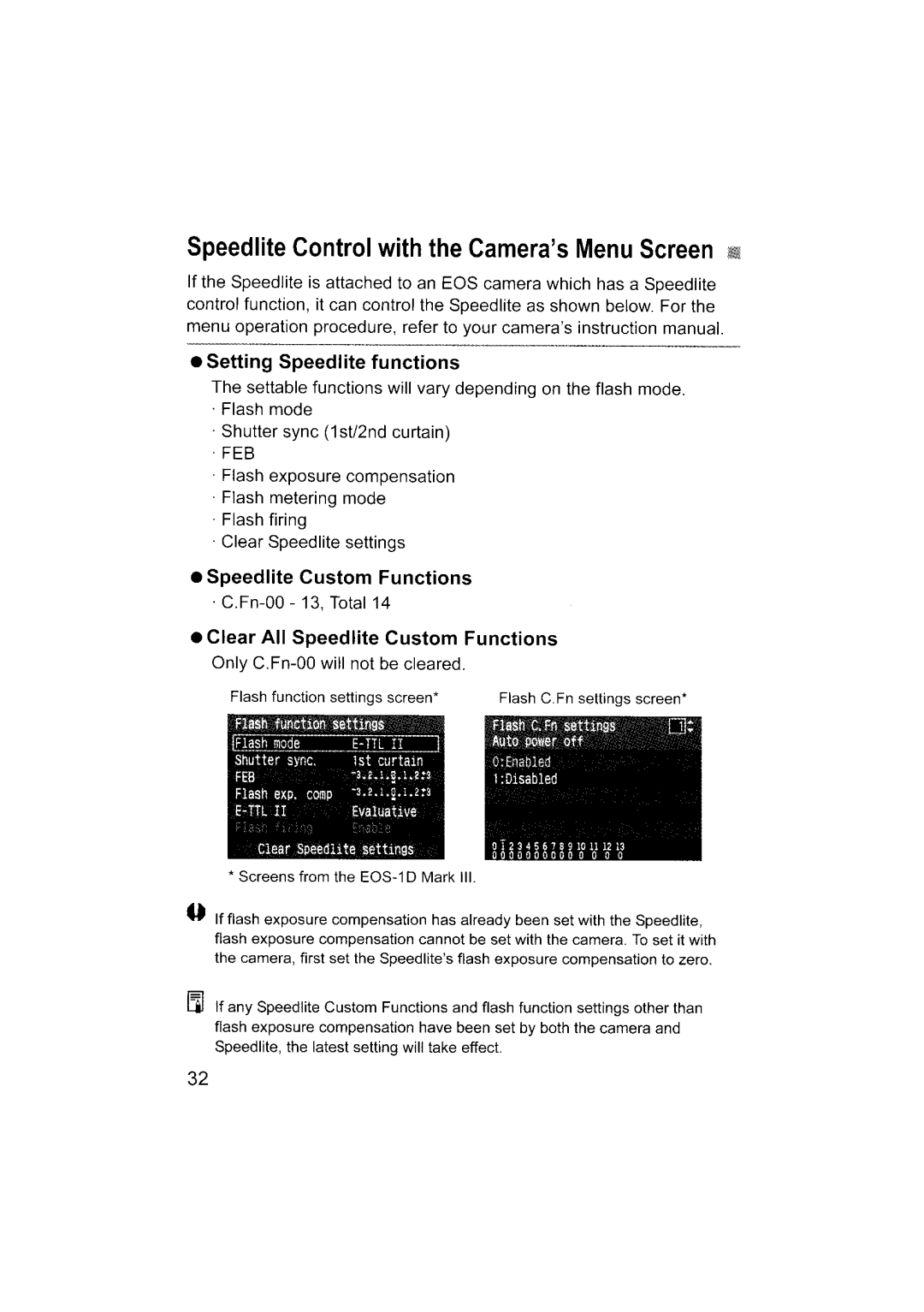580EX II specifications
The Canon 580EX II is a powerful external flash unit designed for both amateur and professional photographers seeking to enhance their lighting capabilities. As a part of Canon's Speedlite series, the 580EX II offers a range of main features and advanced technologies that make it an essential tool for any photography setup.One of the most notable features of the Canon 580EX II is its impressive guide number of 58 at ISO 100, which provides strong illumination for both close-up and long-distance subjects. This high guide number allows photographers to achieve effective lighting in various situations, whether shooting indoors or outdoors. The flash head can also tilt up to 90 degrees and rotate 180 degrees in either direction, allowing for versatile bounce and indirect lighting techniques that help produce soft, natural-looking shadows.
The 580EX II is equipped with Canon's E-TTL II (Evaluative Through-The-Lens) flash metering technology. This advanced metering system enables the flash to communicate with the camera to achieve optimal exposure settings automatically. The result is a more consistent and accurate portrayal of subjects in various lighting conditions, reducing the likelihood of overexposed or underexposed shots.
Another key characteristic of the 580EX II is its fast recycle time, which allows photographers to take multiple shots in quick succession without significant delays. This is especially beneficial during dynamic shooting scenarios like events or wildlife photography, where timing is crucial. The flash can operate in both manual mode for full control or in automatic mode for ease of use, catering to different shooting preferences.
The Canon 580EX II is also compatible with a variety of Canon EOS cameras, ensuring seamless integration into existing camera systems. Additionally, it supports wireless flash photography, allowing for creative off-camera flash setups when paired with compatible Canon camera bodies. Photographers can experiment with different lighting angles and configurations to enhance their creative vision.
Durability is an important factor in the design of the 580EX II, featuring a robust construction that can withstand the rigors of professional use. It also includes a dust and moisture-resistant design, providing added protection when shooting in challenging environments.
In summary, the Canon 580EX II stands out as a versatile and powerful flash unit, combining numerous features and advanced technologies that cater to the needs of photographers. Its high guide number, E-TTL II integration, fast recycle time, and durability make it a reliable choice for enhancing any photography experience. Whether used for portraits, events, or creative lighting, the 580EX II is an invaluable asset in the photographer's toolkit.

